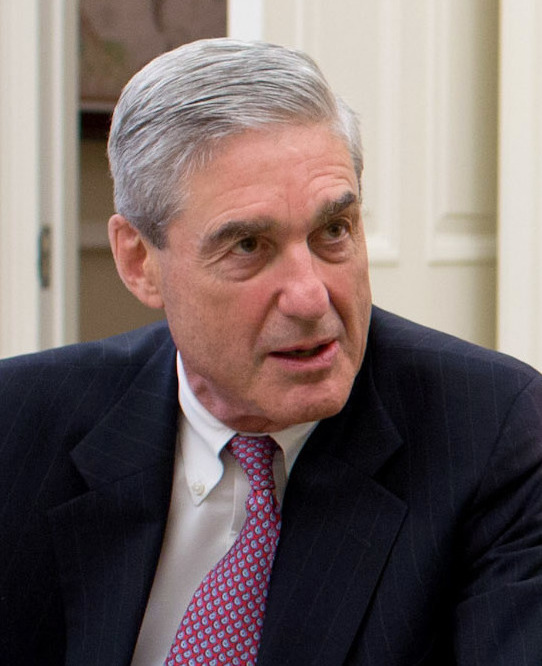House committee subpoenas full Mueller report

Special counsel Robert Mueller. Photo from Wikimedia Commons.
On Friday, the House Judiciary Committee issued a subpoena for the full report by special counsel Robert Mueller without redactions.
The subpoena has a May 1 deadline, report Politico and the Washington Post.
U.S. Attorney General William Barr said Thursday congressional leaders would get a version of the report with fewer redactions than the report that is released to the public. Only grand jury material would be redacted in the version given to the leaders, as is required by federal law, he said.
The public version also has redactions of material that can compromise sensitive sources and methods, information that could affect ongoing matters, and material that could affect the privacy and reputations of peripheral third parties.
House Judiciary Committee Chairman Jerrold Nadler, a Democrat in New York, said in a statement that his committee is entitled to a full version of the report and the underlying evidence. He told Good Morning America on Friday that his committee has to examine the full report to make informed decisions about whether to pursue impeachment.
“Even the redacted version of the report outlines serious instances of wrongdoing by President Trump and some of his closest associates,” Nadler said in a statement. “It now falls to Congress to determine the full scope of that alleged misconduct and to decide what steps we must take going forward.”
Mueller’s report found no collusion between Russia and the Trump campaign using a definition of collusion informed by conspiracy law. Mueller said there would have to be a tacit or express agreement between the campaign and the Russian government to constitute collusion, and that didn’t happen.
Mueller didn’t decide whether Trump’s actions constituted obstruction of justice. “The evidence we obtained about the president’s actions and intent presents difficult issues that prevent us from conclusively determining that no criminal conduct occurred,” the report said.
Mueller took into consideration an opinion by the Department of Justice’s Office of Legal Counsel that an indictment of a sitting president would impermissibly undermine the executive branch’s ability to perform, violating the separation of powers.
The special counsel is a lawyer within the DOJ, and “this office accepted the OLC’s legal conclusion for the purpose of exercising prosecutorial jurisdiction,” the report says.
Mueller said he did not want to determine whether Trump’s conduct constituted a criminal offense because there would be no trial at which the president could exonerate himself.
“If we had confidence after a thorough investigation of the facts that the president clearly did not commit obstruction of justice, we would so state,” the report says.
Write a letter to the editor, share a story tip or update, or report an error.


